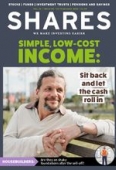Archived article
Please note that tax, investment, pension and ISA rules can change and the information and any views contained in this article may now be inaccurate.
Where’s the best place for £100,000 cash?

Many people after a property transaction will be left with a large amount of cash that they may need in the relatively short term but not immediately.
If we assume someone has banked proceeds of say £100,000, from a house sale or some other big transaction or windfall, where would be the most appropriate home for that cash for a 12-month period and how could you ensure it was protected?
Let’s tackle this question in two parts: where the best place is for a large amount of cash and just how it is protected.
First it’s worth examining the protection part. Ordinarily the Financial Services Compensation Scheme will protect any money you hold with UK-authorised banks, building societies and credit unions up to £85,000 per organisation. This increases to £170,000 per couple if you have a spouse to benefit from a higher limit.
However, the scheme also covers up to £1 million for six months in cases where you have a temporarily high balance. Among the reasons for that is the proceeds from selling a house, meaning you would qualify (other reasons include redundancy payments, inheritance and retirement payouts).
NO IMMEDIATE NEED TO WORRY
That means you don’t need to immediately worry about your money not being protected, if it’s currently just sitting in one account. But as you plan to keep it for at least 12 months you’ll need to split it between two banks within six months. You can split it 50:50 or put the £85,000 limit with one organisation and £15,000 with another.
One thing to be aware of is that some banks operate under different brand names, but the protection is for the bank behind the brand, not for each brand name or subsidiary. An example is HSBC Bank and First Direct.
Now, let’s tackle the first part of the equation: where is the best place for £100,000 in cash (bearing in mind you’ll need to split it between two providers)? Ordinarily with interest rates so low at the moment and inflation high, investing your money is probably a better idea. But if you’re on a time period of a year or a little bit more, cash is a more realistic option given the risks posed by market volatility.
LOOKING FOR INSTANT ACCESS
If you wanted to have instant access to your money the highest rate you can get according to financial information site Moneyfacts (as of the 2 February) is from Investec, which pays 0.71%. You need to put in a minimum of £5,000, but that won’t be an issue for you. The next best option (and where you’ll need to put some of your money if you want all of it in an easy-access account) is Cynergy Bank, which pays 0.7%. If you put £85,000 with Investec and the remainder with Cynergy you’d make £708.50 interest over a year.
If you want to earn a bit more interest you could lock up some or all of the money. You mention not needing it for at least 12 months, so you could get a one-year fixed account. The top rate you can get on a one-year fixed rate account is 1.51%, which is offered by both Charter Savings Bank and Gatehouse Bank, both of which can be opened online. If you split the money between the two then you’d earn £1,510 in interest over a year – more than double with the easy-access accounts. Another option is to split the money between easy-access and fixed, giving you access to some of the money but getting the higher interest rate on the rest.
MINDFUL OF TAX
You need to be mindful of tax. If you’re a basic-rate payer you can earn up to £1,000 from savings tax-free each year, but if you’re a higher-rate payer this is cut to £500, while additional rate payers get nothing. Anything you earn above that allowance will be taxed at your normal income tax rate, and you’ll need to take into account any other savings interest you earn.
If you think you’re going to be hit with a tax bill you have a couple options: ISAs or National Savings & Investments.
Any money held with National Savings & Investments is tax free, so you could opt for Premium Bonds, they are Government-backed and so aren’t subject to the £85,000 limit. However, you can only pay in up to £50,000, so you’ll still have to split the money between two places. Premium Bonds don’t offer an actual interest rate but instead the chance to win prizes each month, up to £1 million. The projected interest rate, based on the average chance of winning, is 1% - but you could win nothing, so it’s a bit of a gamble.
A cash ISA is your other option, with any interest earned being tax free. However, you can only pay in up to £20,000 in each tax year, so it will take you a few years to shelter your money from tax. You could pay in £20,000 now and another £20,000 in the next tax year in April. The rates on cash ISAs are a bit lower too, so the top easy-access option is from Shawbrook Bank, paying 0.61%, while for a one-year fixed rate account the most you can earn is 1% from Coventry Building Society.
Important information:
These articles are provided by Shares magazine which is published by AJ Bell Media, a part of AJ Bell. Shares is not written by AJ Bell.
Shares is provided for your general information and use and is not a personal recommendation to invest. It is not intended to be relied upon by you in making or not making any investment decisions. The investments referred to in these articles will not be suitable for all investors. If in doubt please seek appropriate independent financial advice.
Investors acting on the information in these articles do so at their own risk and AJ Bell Media and its staff do not accept liability for losses suffered by investors as a result of their investment decisions.
Issue contents
Editor's View
Feature
Great Ideas
- Google-owner does the splits as it smashes Q4 expectations
- Grab a great buying opportunity in Gamma Communications
- Pets At Home's new CEO is a great hire and the shares are still a buy
- Our buy call on Shell is up nearly 20% in two weeks
- Take advantage of Smithson’s stumble and top up
- Virgin Wines’ share price slump looks overdone
- This value-tilted global fund is now outperforming

 magazine
magazine








